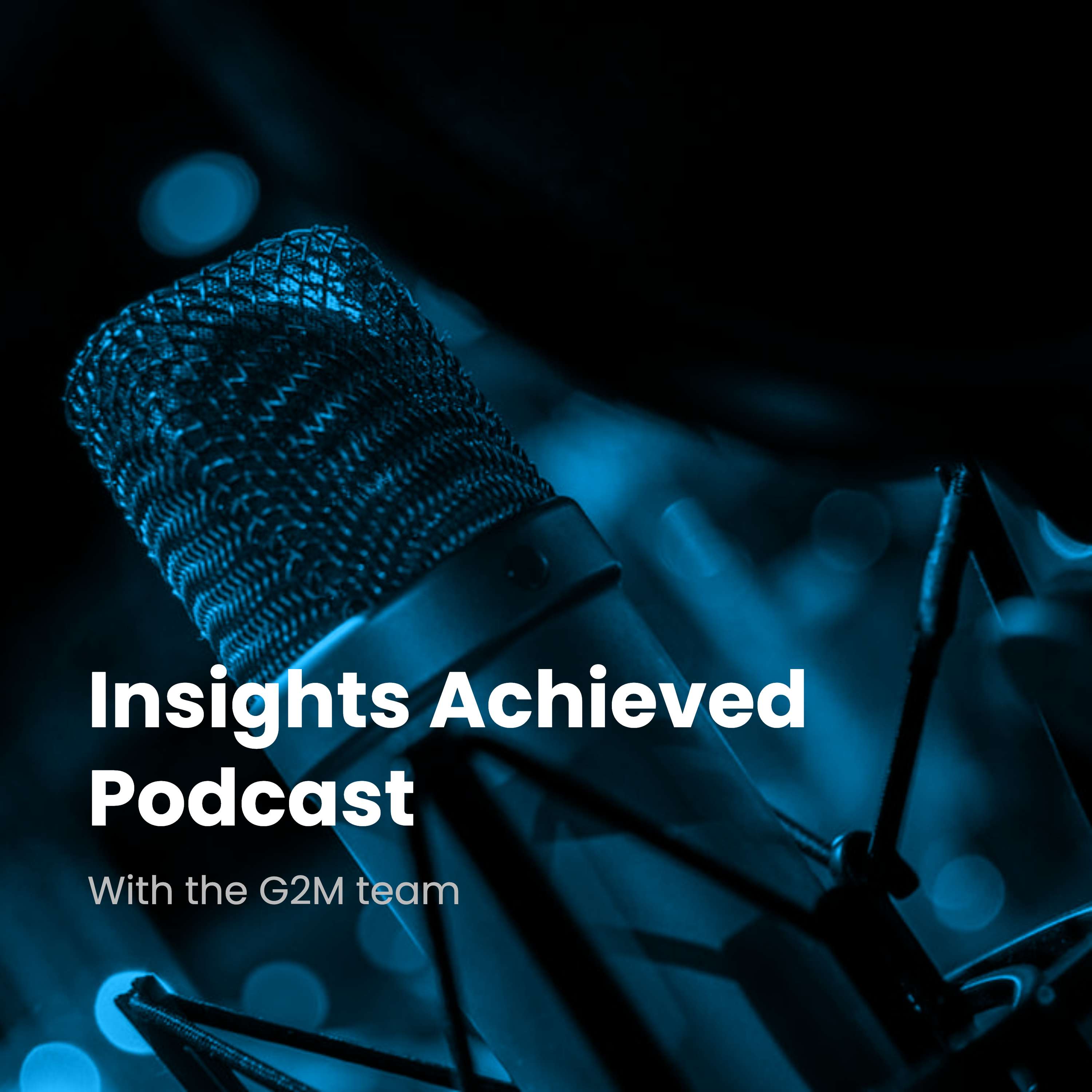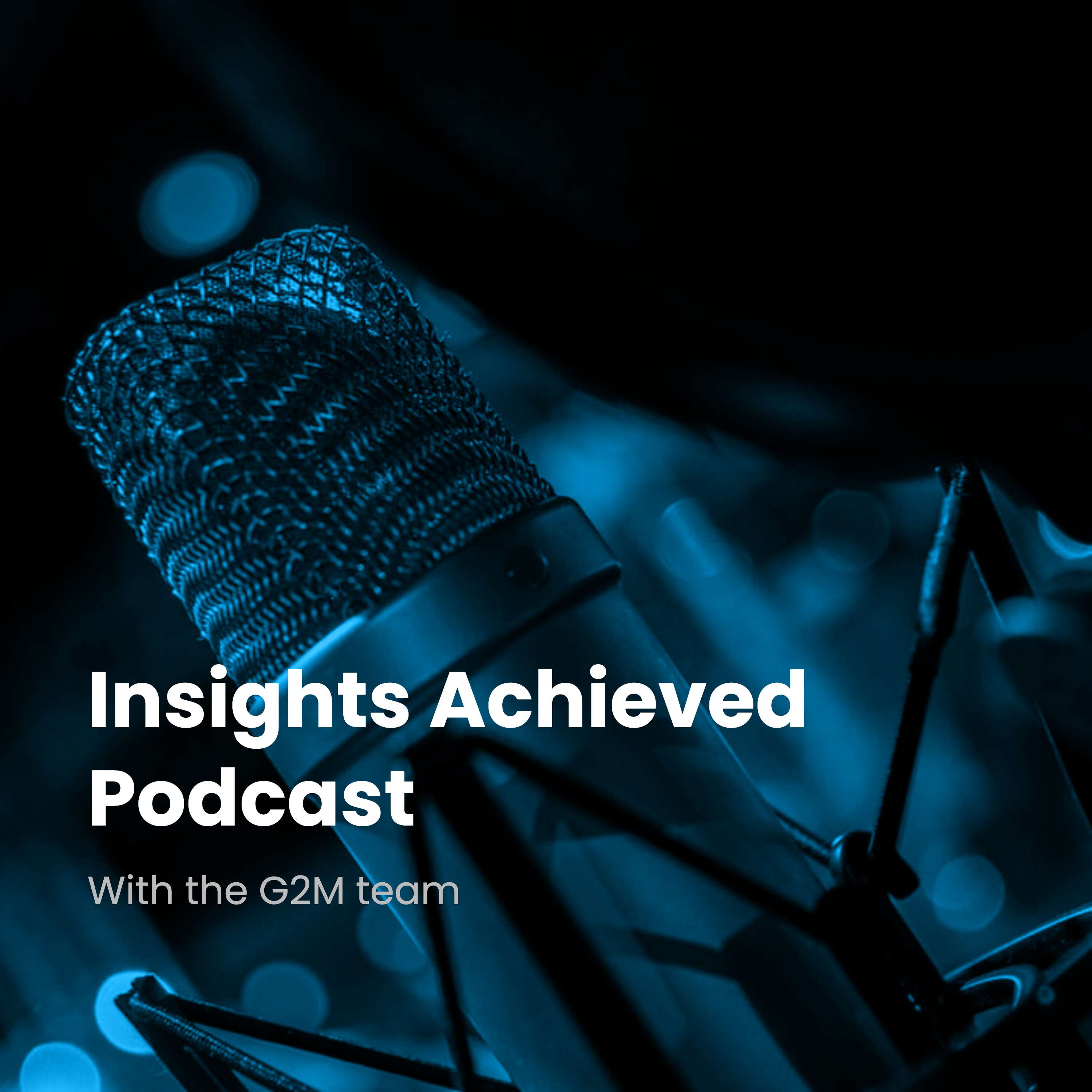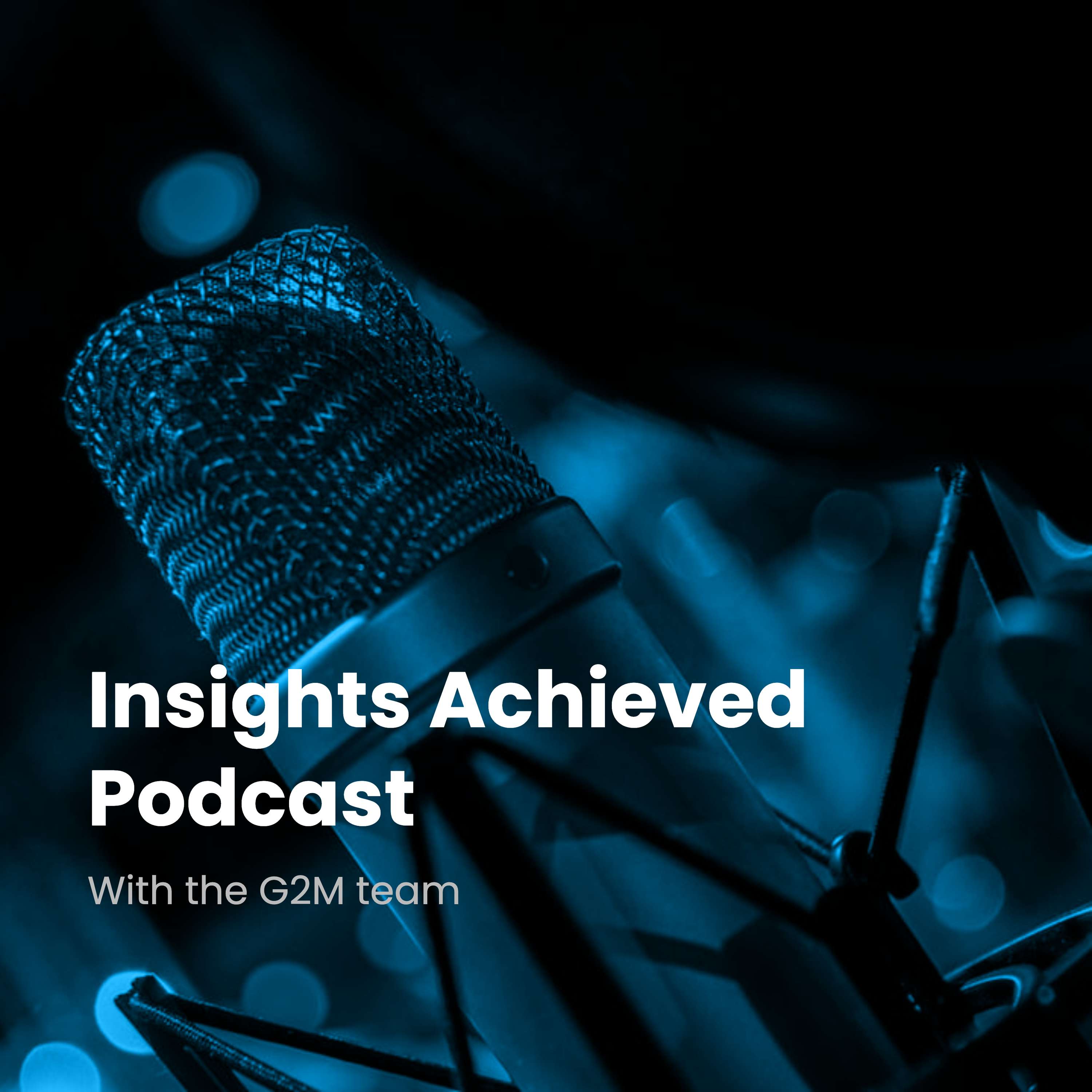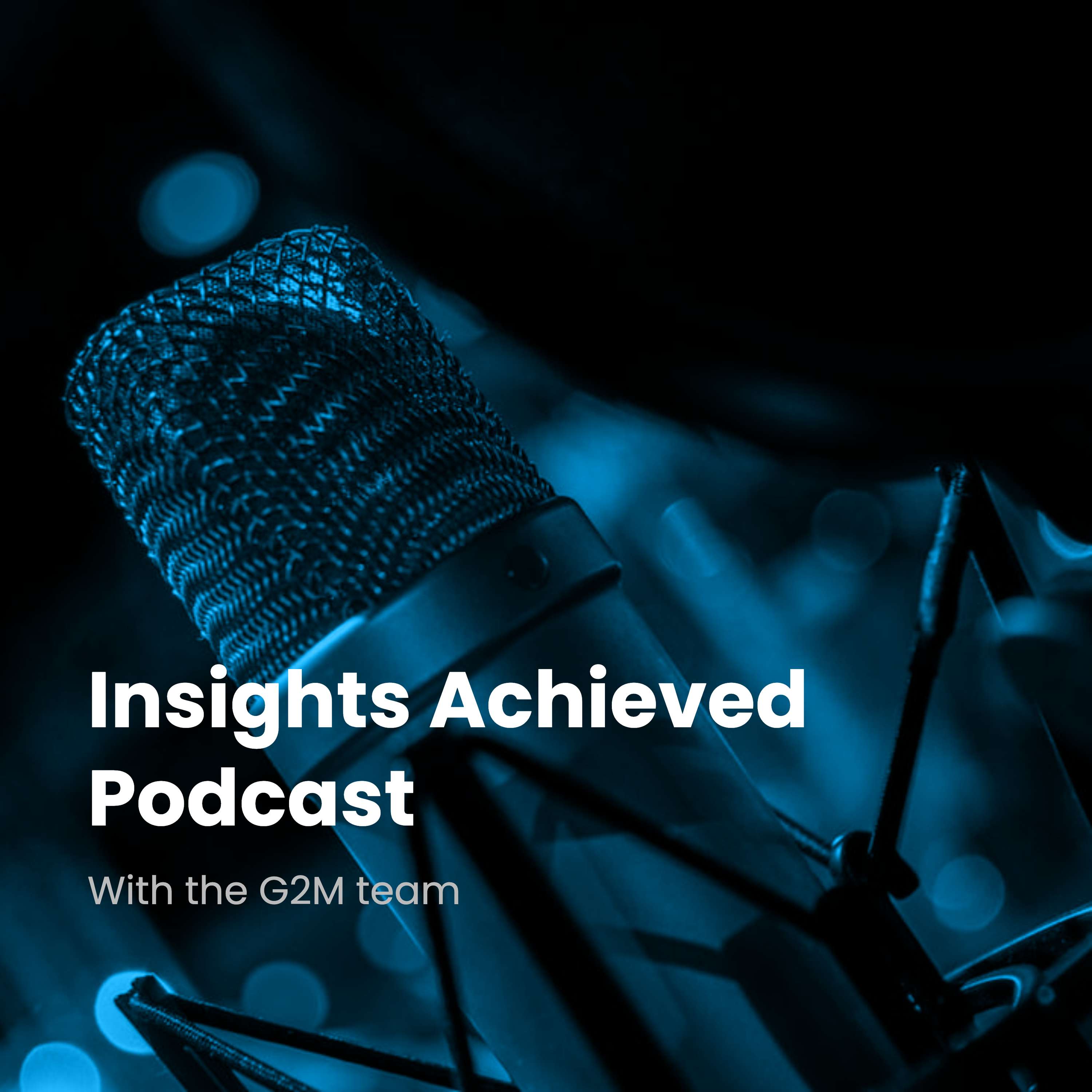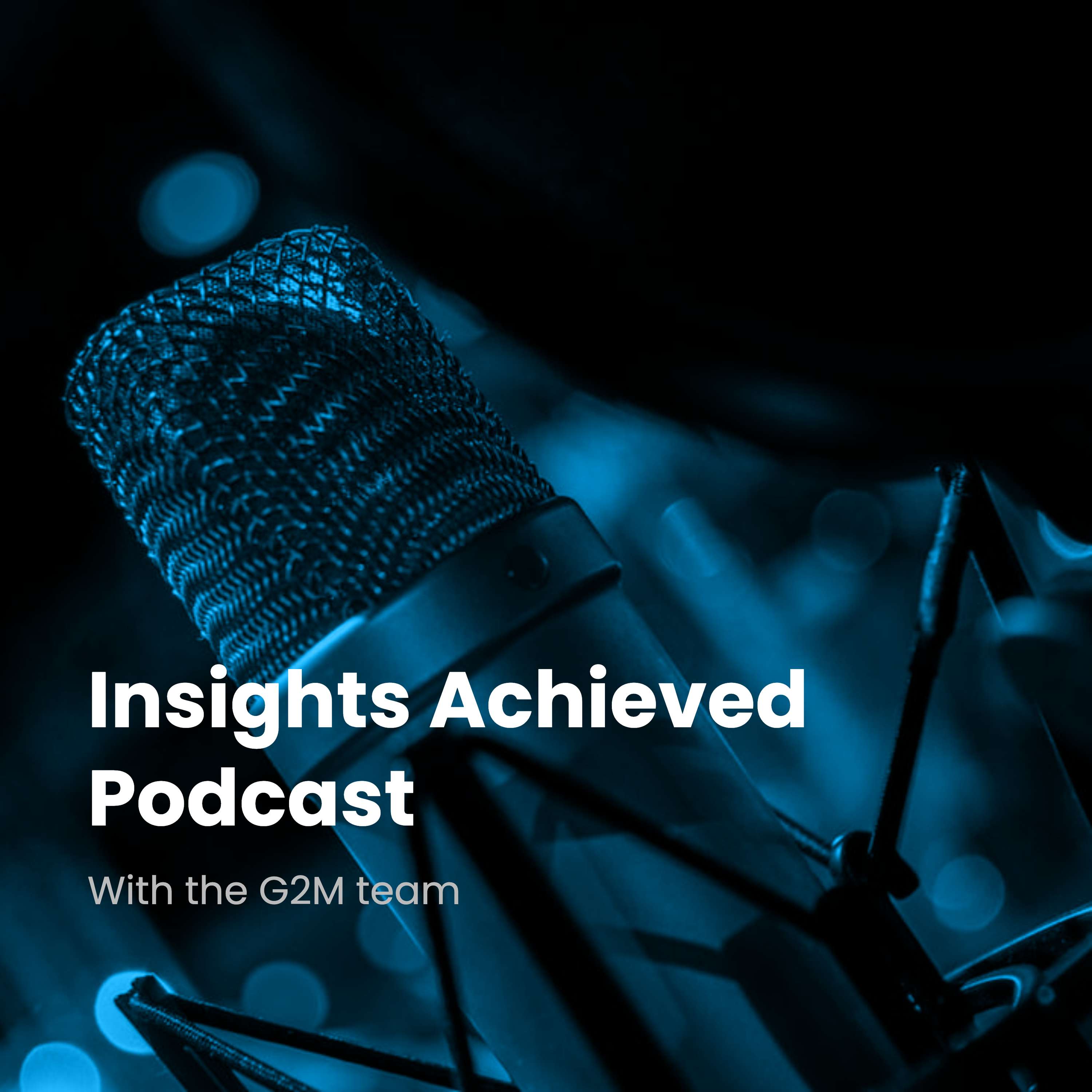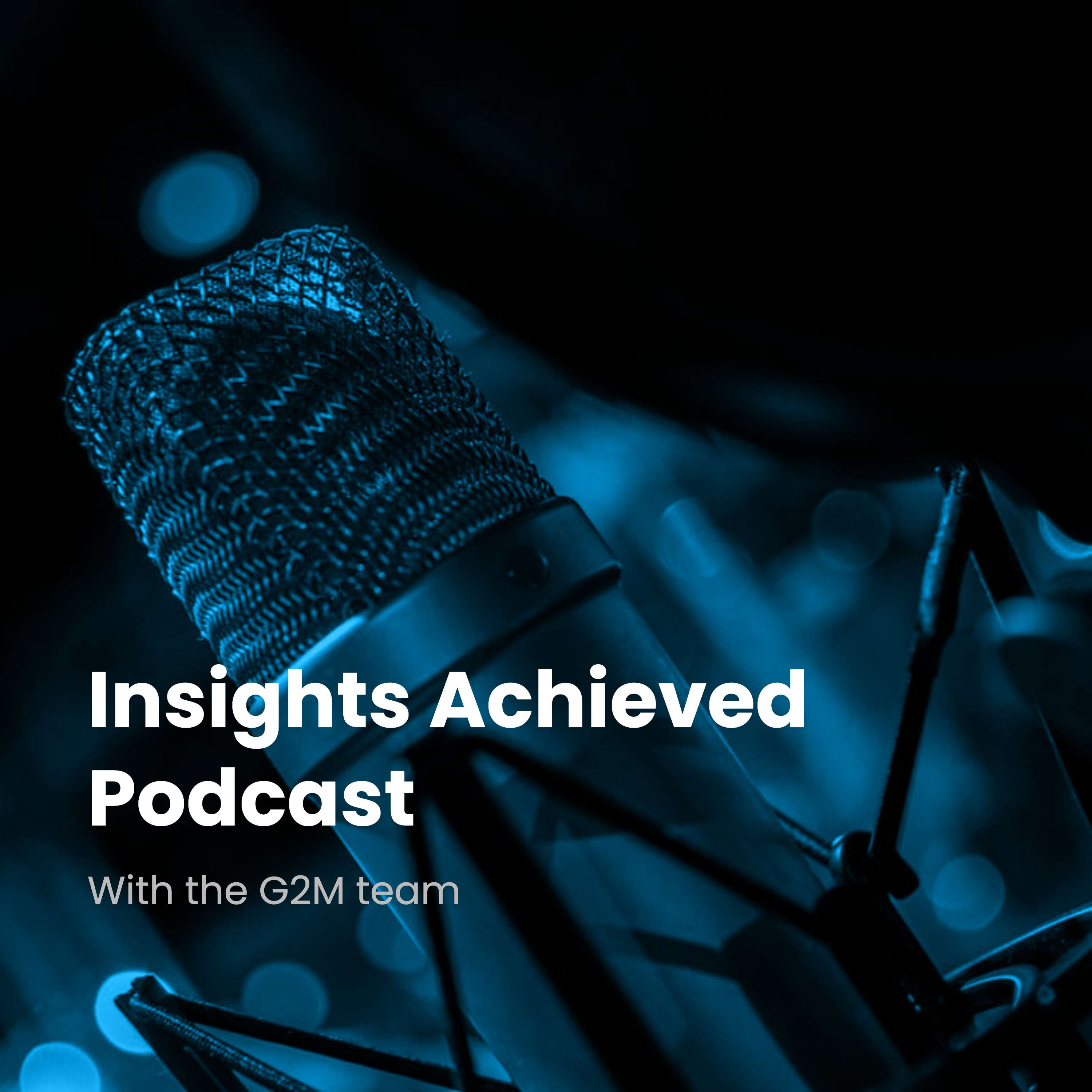Episode Transcript
[00:00:00] Speaker A: Okay, let's unpack this. Think about this number. It's quite striking. 94%, 94% of businesses, they're collecting tons of data, right?
[00:00:08] Speaker B: Oh, absolutely. Mountains of it.
[00:00:09] Speaker A: But when it comes down to actually, you know, understanding their performance from that data, it sounds like most are just flying blind.
[00:00:15] Speaker B: That's the core issue, isn't it? Getting the data isn't really the bottleneck anymore. It's making sense of it all, turning it into something actionable. That's where the opportunities slip away.
[00:00:27] Speaker A: Exactly. And that's really why we're doing this deep dive today. We want to explore how AI artificial intelligence is just completely changing the game for sales and marketing leaders like you.
[00:00:37] Speaker B: Yeah, transforming how companies track things, understand what's happening, and crucially optimize their operations.
[00:00:44] Speaker A: And for this, we're drawing on insights from G2M insights looking at their take on modern performance management systems and specifically their Overwatch solution too.
[00:00:54] Speaker B: Right. Our goal here, our mission is really to boil this down for you. Find those key nuggets of knowledge showing how AI can genuinely help you run a better business.
[00:01:03] Speaker A: You know, drive more growth, but do it more effectively, more efficiently.
[00:01:07] Speaker B: That's the promise.
[00:01:09] Speaker A: So let's get into it.
How are these new AI powered systems really different? I mean, different from the dashboards and like the static reports we've all used for years?
[00:01:20] Speaker B: Well, the big shift is moving from just showing you data points to actively interpreting them, providing context.
So traditional reports tell you what happened. Maybe last quarter, last week, these newer systems, they start telling you why it happened.
[00:01:37] Speaker A: Ah, the why.
[00:01:38] Speaker B: And even hinting at what might happen next. They use some pretty sophisticated tools like knowledge graphs.
[00:01:44] Speaker A: Knowledge graphs? Like a map or something?
[00:01:45] Speaker B: Yeah, kind of think of it like a dynamic map showing how all your different data points connect and relate to each other. That combined with advanced AI, including, you know, large language models.
[00:01:55] Speaker A: Wait, large language models? Aren't those the things writing articles or chatting? How do they help analyze performance numbers?
[00:02:01] Speaker B: That's a really good question. So in this context, don't think of them for like writing your emails. Think about using them to understand and process all the complex sort of unstructured text data you have.
[00:02:13] Speaker A: Like what kind of data?
[00:02:15] Speaker B: Things like notes from customer feedback, maybe detailed support ticket information, even subtle things in sales call notes. LLMs can process that language.
[00:02:25] Speaker A: I see.
[00:02:26] Speaker B: And they can link that qualitative stuff to your hard quantitative performance numbers in ways that were just impossible before. Add the knowledge graph, mapping all the connections, and suddenly these systems can spot.
[00:02:37] Speaker A: Really complex patterns, patterns, a Human analyst might just.
[00:02:41] Speaker B: Almost certainly. Yeah. The scale and complexity are often just too much for manual analysis.
[00:02:46] Speaker A: Okay, that sounds powerful, but can you make it more concrete? Like, give us an example. How does this actually help a sales leader or a marketing director day to day?
[00:02:56] Speaker B: Absolutely. Okay, imagine you're looking at, say, conversion rates.
[00:02:59] Speaker A: Yeah.
[00:02:59] Speaker B: Maybe for a specific marketing campaign or a sales territory.
[00:03:02] Speaker A: Great. Standard metric.
[00:03:03] Speaker B: An AI system wouldn't just flag. Hey, conversion is low here. If you. It could correlate that dip with maybe recent tweaks to your website's pricing page. Okay, but only for users in that specific territory. And maybe it also sees certain keywords popping up in support tickets from that same customer segment.
[00:03:25] Speaker A: Connecting dots across departments.
[00:03:27] Speaker B: Exactly. Might even pull in external factors. Like detecting a competitor's new promotion online. That's relevant. It links these seemingly unrelated things to show you the likely root cause or maybe a hidden factor driving that performance.
[00:03:40] Speaker A: So it's not just diagnosing what's happening now. The source material also mentioned predictive capabilities.
[00:03:46] Speaker B: Yes, and that's where it gets really, really impactful. Because these systems learn the complex relationships and patterns over time, they can often anticipate potential problems before they blow up and hit your bottom line.
[00:03:57] Speaker A: Like an early warning system.
[00:03:59] Speaker B: Precisely. For instance, it might pick up on a subtle shift in how prospects are interacting with your online demo schedul. Or maybe a slight change in support ticket volume for one particular product feature.
[00:04:09] Speaker A: Okay.
[00:04:09] Speaker B: And it could flag that as predicting potential churn risk for a specific group of customers, maybe weeks before the renewal is even due, giving you time to react.
[00:04:20] Speaker A: Wow. Now, does all this automation, does it risk pushing the human decision maker out of the loop, making them less important?
[00:04:29] Speaker B: Not at all. That's a common concern. But it's really about augmentation, not replacement.
[00:04:33] Speaker A: Augmentation?
[00:04:34] Speaker B: Yeah. Think of it like this. You used to navigate with maybe a paper map, then came gps. Now you have GPS with real time traffic updates suggesting faster routes.
[00:04:44] Speaker A: Right. Makes sense.
[00:04:45] Speaker B: The human is still driving the car, you're still making the decisions, but you have vastly better constantly updated information to make smarter, faster choices.
These AI systems act as this incredibly efficient intelligence layer, just pulling everything together for you.
[00:05:00] Speaker A: Okay, that clicks. And is this kind of tech only for, like giant corporations with huge budgets?
[00:05:05] Speaker B: That's a really key point. From the sources. No, it's becoming much more accessible now.
[00:05:09] Speaker A: Good to know.
[00:05:10] Speaker B: Thanks to things like cloud computing and more modular system designs, businesses can often start smaller. Maybe just focus on their core sales pipeline velocity or key marketing funnel metrics.
[00:05:21] Speaker A: First and Then build up from there.
[00:05:23] Speaker B: Exactly. It's adaptable. Whether your focus is overall revenue, operations or or specific campaign ROI or even internal operational productivity, the underlying tech can tailor the insights.
[00:05:36] Speaker A: And the real time nature must be a huge advantage. Right? For sales and marketing folks who need to move fast.
[00:05:42] Speaker B: Oh, it's crucial. Waiting for that weekly report, or worse, the monthly one. You're always looking backwards, reacting too late, right? These systems give you a real time pulse. They highlight the significant shifts or anomalies needing attention now, separating them from just the normal day to day noise.
[00:05:58] Speaker A: We've clearly come a very, very way from just staring at rows and columns in a spreadsheet.
[00:06:03] Speaker B: Absolutely. Light years. These AI powered performance management systems, you know, like the Overwatch solution detailed in the source material from G2M Insights, they aren't science fiction anymore.
[00:06:13] Speaker A: They're here now.
[00:06:14] Speaker B: They're here now, delivering those real time insights, finding correlations and offering that predictive power.
[00:06:21] Speaker A: So this technology really does offer powerful tools for you, the listener, to drive your own growth, your own efficiency. It's fundamentally changing how businesses operate and compete.
[00:06:32] Speaker B: It really is.
[00:06:32] Speaker A: So here's a final thought to leave you with.
Considering the sheer amount of data your business generates every single day, where are you maybe still flying blind, what critical opportunities or maybe hidden risks could truly understanding those patterns reveal specifically for you?
[00:06:50] Speaker B: Hmm, that's a powerful question to ask.
[00:06:52] Speaker A: And Remember, solutions like G2M Insights Overwatch are real world examples of this kind of performance intelligence technology already out there, helping businesses get that clarity today.
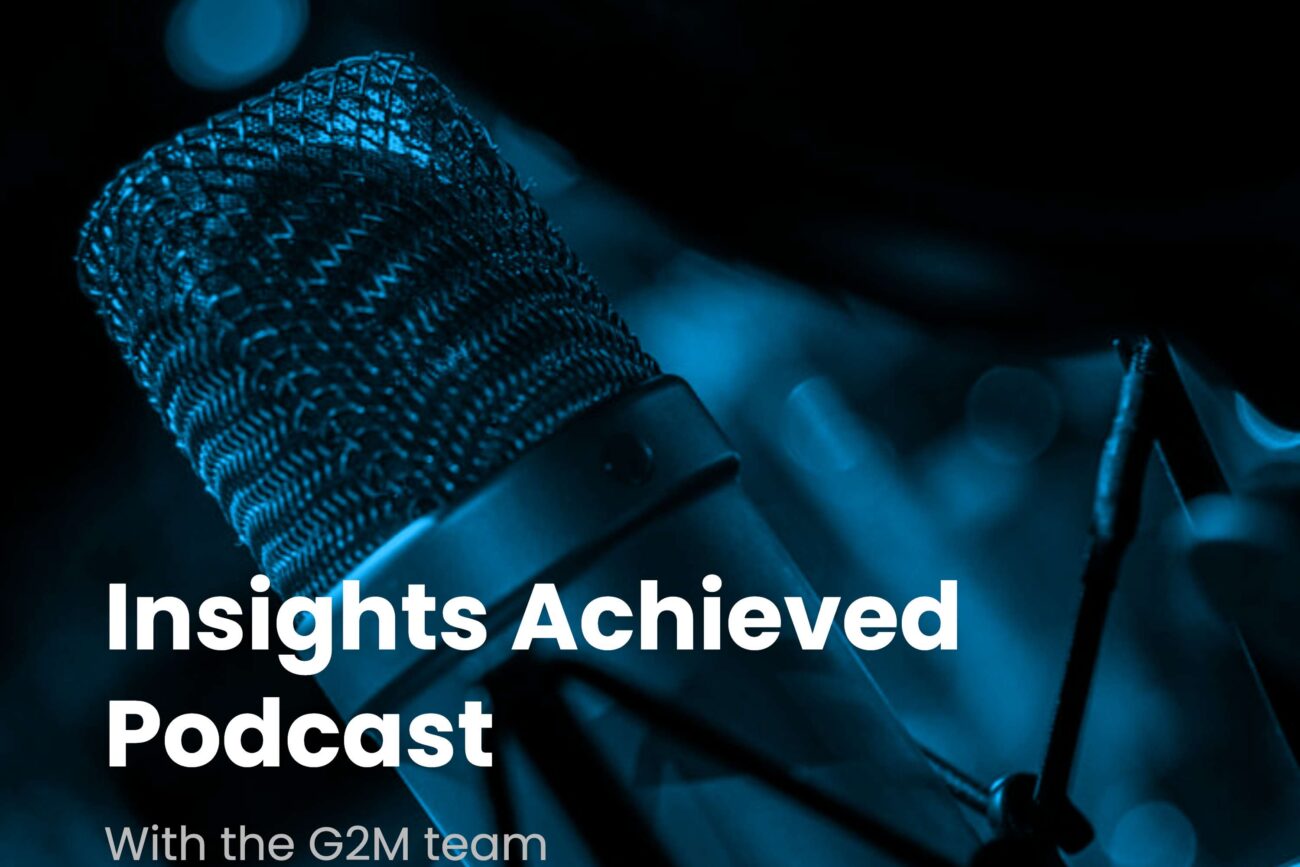 In this podcast episode, we dive into the transformative power of Artificial Intelligence (AI) in reshaping how businesses measure performance. Discover how traditional approaches, often leaving companies “flying blind” despite vast data collection, are being revolutionized by real-time interpretation and predictive analytics powered by AI. Learn about the groundbreaking role of knowledge graphs and advanced algorithms that uncover hidden patterns and relationships, predict potential issues, and suggest actionable interventions humans might overlook. We explore how AI not only complements human decision-making but also makes advanced analytical tools increasingly accessible and affordable. Join us to understand how embracing AI-driven analytics is […]
In this podcast episode, we dive into the transformative power of Artificial Intelligence (AI) in reshaping how businesses measure performance. Discover how traditional approaches, often leaving companies “flying blind” despite vast data collection, are being revolutionized by real-time interpretation and predictive analytics powered by AI. Learn about the groundbreaking role of knowledge graphs and advanced algorithms that uncover hidden patterns and relationships, predict potential issues, and suggest actionable interventions humans might overlook. We explore how AI not only complements human decision-making but also makes advanced analytical tools increasingly accessible and affordable. Join us to understand how embracing AI-driven analytics is […]
